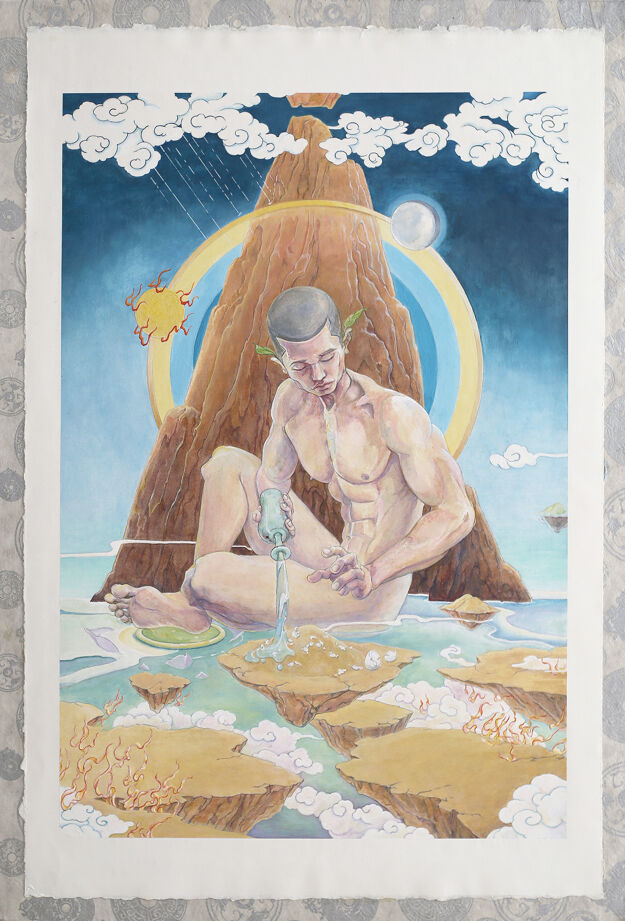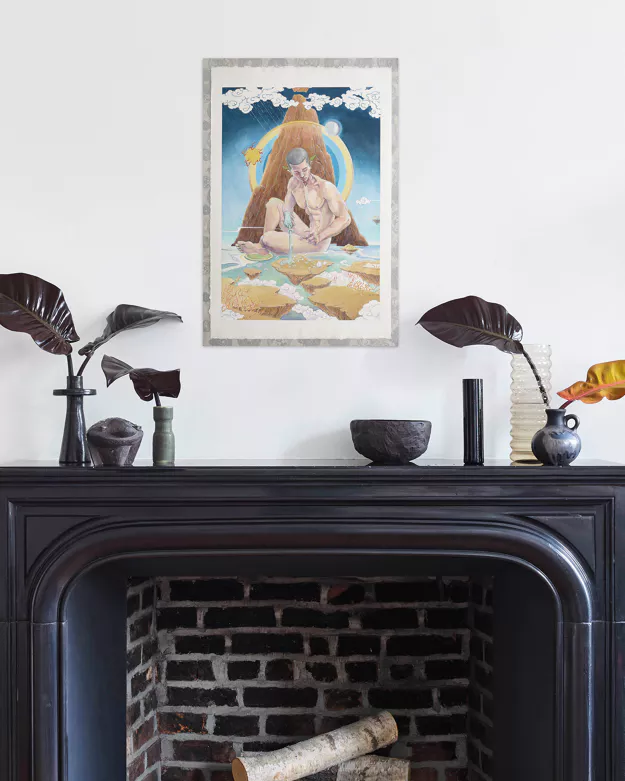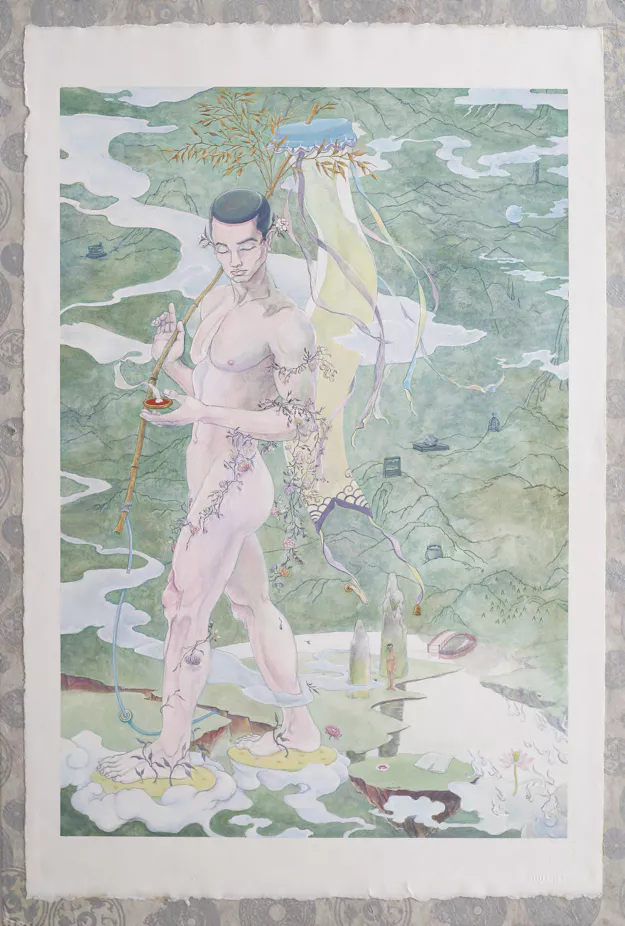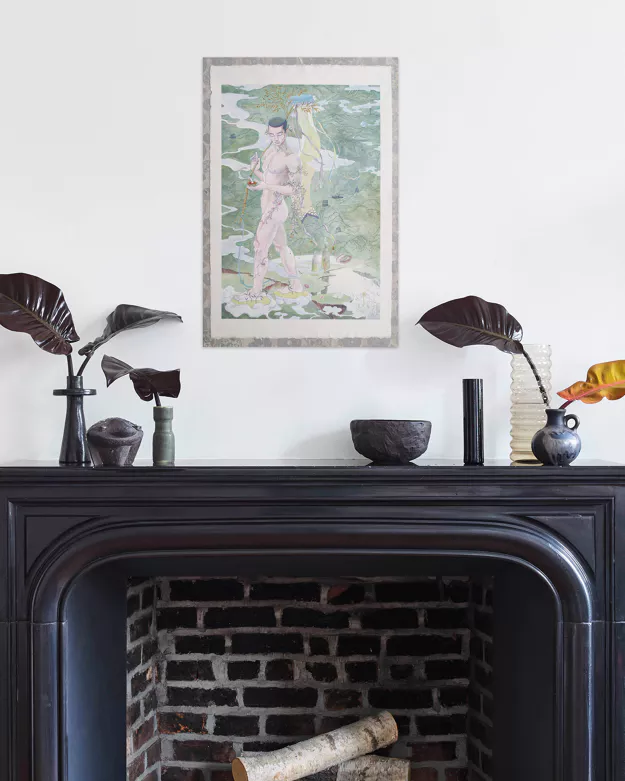Henry Hung Chang’s watercolor paintings reimagine symbols and motifs in Asian folk religion and classical literature to contemplate queer identity. Born and raised in a temple in Taiwan founded by his grandparents, religious practice was central to Chang’s childhood. He found comfort in the folktales of East Asian religions, specifically in forming his queer identity and, later, his artistic practice. His work ponders contemporary queer issues through an outsider lens and a pictorial approach that is often anti-narrative and non-chronological, with space rather than linear timelines connecting his stories. In his work, Chang dresses his figures anonymously or in masks to embody a range of deities while repurposing imagery from folktales and classical literature to explore the complexities of his contemporary queer experience.
Henry Hung Chang
Continue reading



